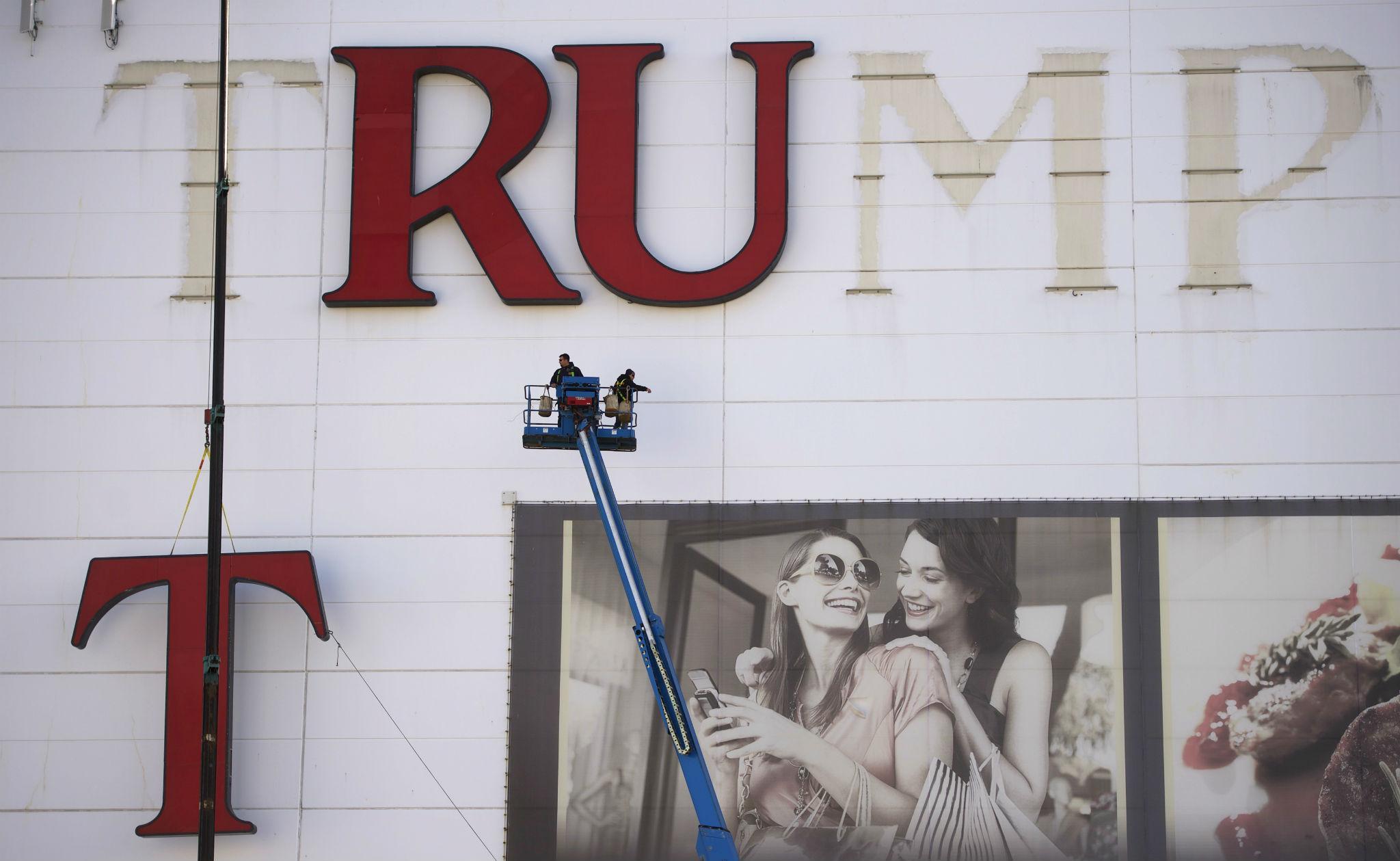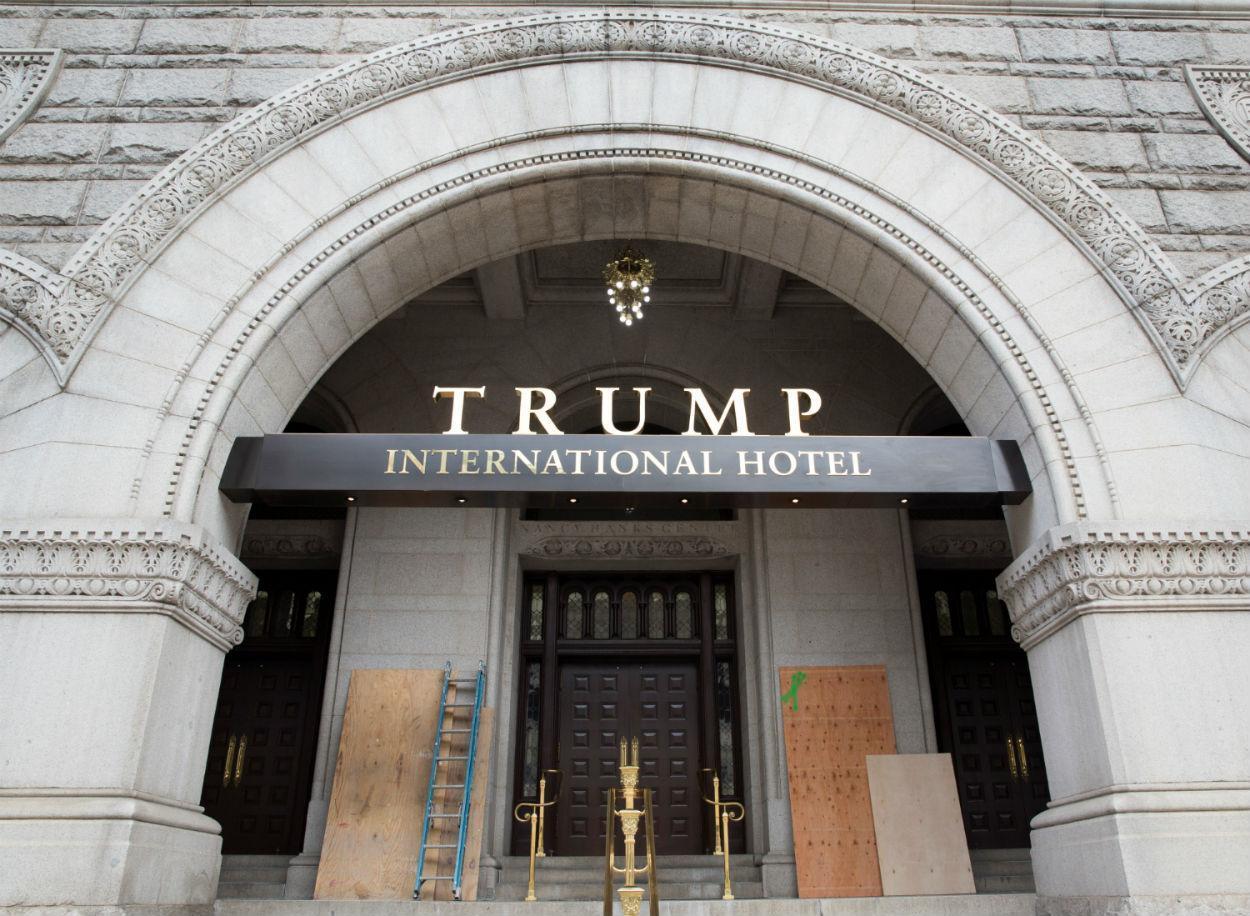How Donald Trump's election campaign has turned his precious brand toxic
With his new five-star hotel apparently struggling to attract guests, while former clients desert his golf courses and restaurants, the property developer and presidential nominee may be forced to look for new ways to monetise his notoriety

Your support helps us to tell the story
From reproductive rights to climate change to Big Tech, The Independent is on the ground when the story is developing. Whether it's investigating the financials of Elon Musk's pro-Trump PAC or producing our latest documentary, 'The A Word', which shines a light on the American women fighting for reproductive rights, we know how important it is to parse out the facts from the messaging.
At such a critical moment in US history, we need reporters on the ground. Your donation allows us to keep sending journalists to speak to both sides of the story.
The Independent is trusted by Americans across the entire political spectrum. And unlike many other quality news outlets, we choose not to lock Americans out of our reporting and analysis with paywalls. We believe quality journalism should be available to everyone, paid for by those who can afford it.
Your support makes all the difference.To Donald Trump, the first televised presidential debate on 26 September seemed like a suitable moment to plug his new hotel. “We’re just opening up on Pennsylvania Avenue right next to the White House,” the property developer noted, apropos of not very much, before a broadcast audience of approximately 84 million. “So if I don’t get there one way, I’m going to get to Pennsylvania Avenue another.”
The five-star Trump International Hotel in Washington DC occupies the US capital’s grand, 19th-century Old Post Office building. But while the owner has touted it as the “best hotel in Washington” and taken every opportunity to promote its recent opening on the presidential campaign trail, the Trump DC has reportedly struggled to attract custom.
Ahead of the annual October meetings of the World Bank and IMF, every other five-star hotel in Downtown Washington was fully booked. But days before the conference, according to New York, the Trump DC was reduced to flogging its empty rooms at heavily discounted rates. Its entrance was recently defaced with “Black Lives Matter” graffiti, while two celebrity chefs – dismayed by Trump’s anti-Mexican rhetoric – pulled out of planned hotel restaurant ventures.
Trump’s candidacy began primarily as a branding exercise. On a visit to the UK this summer, he welcomed Brexit from the grounds of his Scottish golf course. His campaign launch last June doubled as a commercial for the gold escalators in the lobby of Trump Tower. When he held a press conference at the Trump DC to announce his shock finding that President Obama was an American, Trump also forced reporters to accompany him on a tour of the new hotel.

At least one former Trump aide has said the property mogul “never intended” to be the Republican nominee, and that his campaign’s aim was to come second in the primaries and “increase his power as a businessman”. If that ambition had been realised, it would have been a cynical hijack of the democratic process – but hey, it might have been entertaining.
Even after calling Mexicans rapists, Trump could probably have retreated from a primary defeat to Jeb Bush or Marco Rubio into the colourful backdrop of American notoriety – a rich, racist but mostly harmless buffoon who could still get invited to guest-host Saturday Night Live once in a while. This time last year, liberals were buying “Make America Great Again” hats to wear ironically at Halloween parties, confident that his candidacy was a mere novelty.
Yet against all expectations, including his own, Trump turned out to be a political savant: the Angry-White-Guy Whisperer. As an electoral effort, his campaign has spectacularly overachieved. As a branding exercise, however, it appears to have been catastrophic. Whatever it signified 18 months ago, today the Trump brand is toxic, its owner exposed as a dictator-in-waiting and alleged sexual predator, not to mention a mediocre businessman.
As the GOP nominee thrashes and careens towards November like a bear with both its eyes poked out, his prospective clientele are registering their disgust by boycotting his hotels and restaurants, tossing out their Trump neckties and pouring their Trump chardonnay down the drain. Retired doctor Morrie Gold told the New York Times that he and 11 friends had cancelled their annual golfing trip to one of Trump’s Florida resorts to make “an ethical statement”.
Adrian Gonzalez, the Mexican-American first baseman for the Los Angeles Dodgers, refused to stay at the Trump International Hotel in Chicago when his team travelled there to play the Cubs. The online travel firm Hipmunk found bookings for Trump hotels had fallen by more than half in the first six months of 2016, compared to the same period in 2015. “Check-in” app Foursquare said check-ins at Trump-owned venues went down 10 per cent in the year to July.
Last month, Trump Hotels announced that its next chain of hotels would not bear its founder’s name. Instead, a press release revealed, the “multi-faceted lifestyle brand” would be called Scion, meaning “descendant of a notable family.” It’s a virtually unprecedented departure for a developer who never saw a skyscraper that he didn’t want to write “TRUMP” across in two-storey capital letters, and it could be seen as tacit acknowledgement that the brand is tarnished.
Trump and his name remain intensely popular with 30 per cent or so of the US electorate. But many of his supporters consider “Washington” a curse word, while others wouldn’t be able to afford the soup of the day at the Trump DC, let alone a night in a luxury suite. So it should come as little surprise that Trump may be seeking alternative ways to monetise his new constituency.
The Financial Times reported this week that Trump’s son-in-law Jared Kushner had “informally approached” media power-broker Aryeh Bourkoff “about the prospect of setting up a Trump television network after the presidential election.”
Kushner owns the New York Observer. Trump’s campaign chief executive Steve Bannon previously ran Breitbart, the alt-right’s go-to news source. His coterie of close advisers also includes ousted Fox News chairman Roger Ailes. Setting up a cable news network seems like a logical step.
But launching a cable channel is not as simple as hosting The Apprentice. Trump has shown scant interest in the logistics required of an effective presidential campaign. TV is a costly business, and the true extent of his wealth remains murky. His past is littered with failures, from airlines to casinos. Who’s to say Trump TV would be any more successful than Trump Steaks?
Join our commenting forum
Join thought-provoking conversations, follow other Independent readers and see their replies
Comments